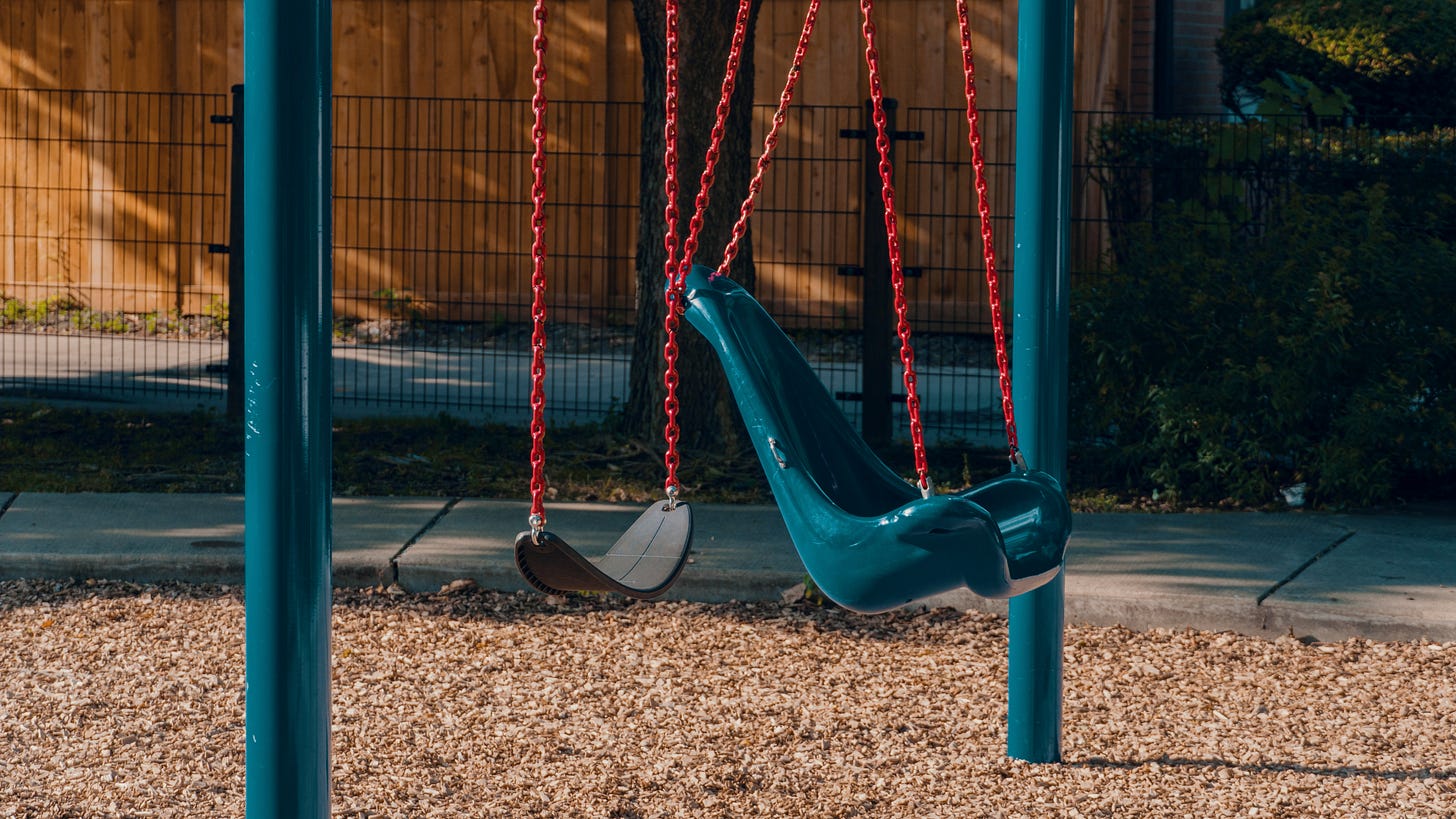A few classroom exercises on the theme of 'Play'
Exploring this year's National Poetry Day (UK) theme ahead of your potential school visits

If you’re a poet looking to establish yourself on the school circuit, the chances are that you’ll start with a few National Poetry Day bookings. So, here are some exercises on this year’s theme.
It’s often useful to have a starting point or a set theme. The pupils benefit from this just as much as we do at home. Occasionally, you might be given something that makes you do a huge internal groan. But themes will work!
This year’ UK National Poetry Day theme is Play, and so I’ve created a handful of short writing exercises for you to try. I created these for KS3 but I’m confident they’d work with KS2 as well. It’s just a case of how you present them.
There are loads of brilliant resources on the Forward Arts website here and on The Poetry Society website here. Also, there’s no paywall behind this post, so please share it with anyone who might appreciate some extra ideas.
Physical play, not Digital
Firstly, I always encourage the pupils to focus on physical play rather than digital. For two fairly obvious reasons: one, much as I love gaming, describing yourself sitting in front of a screen doesn’t immediately lend itself to poetry.
Secondly, nobody wants to sit through 20 different poems about Fortnite. Pupils’ default setting often tends to be herding their ideas, which is mainly a confidence issue. Focusing on physical play encourages individuality and imagination.

What does ‘Play’ mean to you?
As a little warm-up exercises, ask pupils to list five ways in which they like to play. This can be as simple as just listing activities, although I do ask them to avoid writing more than three sports, if possible.
Once they’ve done that, I ask them to define “play”. Almost as if they’re speaking to an alien, or a friend who’s lost their memory. As in, don’t write a literal dictionary-style definition, but try to capture what play is.
Capture a setting for play
Now, we’ll work through four stages to capture a favourite setting for their play. This could be the school playground, the local park, their back garden, a play centre in town (Flip Out, for example).
Step one is a technique that I use in almost every session. Set the day, time, and season, (i.e., Saturday, 10am, Spring). Doing this unlocks the rest of your poetic content. It’s an extremely useful tool. If I have to, I liken it to using filters on eBay.
Step two is to pick two of the senses and use them to capture this setting. Ideally, I think ‘touch’ and ‘sound’ are best here, but sometimes, it’s better to leave it open — depending on the group.
Step three is to choose an animal that represents this place. It could link directly to the activity (i.e. monkey bars), but it’s better just to capture the vibe. Just write one sentence to demonstrate this.
Step four is to invent something mythical or magical about this setting. It could be rooted in hyperbole, it could bend rules (i.e. time slows down), or it could involve transformation (i.e. our park field becomes Wembley).
Encourage pupils to stretch their imaginations as far as possible here and to really push the boat out. It’d be good to invite at least 2-3 responses to avoid them settling for the first idea that comes into their heads.
Once you’ve done this, invite pupils to share back without any explanation — focusing purely on the content. Hearing these building blocks read out in a sequence will very much sound like a draft poem, which is empowering for them.
Explore the transformation
The previous prompt leads perfectly into this one. Let’s embrace the element of transformation that comes through playing: when our imagination leads the way. How do we transform as people when we play? How does the setting transform?
This can be explored through a range of devices such colours (I transform from grey to orange), drinks (from tap water to fizzy pop), or animals (from sloths to chimpanzees). It can also just focus on increased confidence, skill, or a sense of identity.
Again, ask pupils to list at least three ways in which transformation takes place. This highlights how play allows you to escape from everyday life and underlines its importance for expression and wellbeing.
There is no such thing as…
Finally, another of my go-to techniques, which works perfectly with these theme. I use this sentence starter in a huge range of settings. When specifically applied to ‘play’, it works brilliantly.
The response could be homework, blazers and ties, washing up, tidying bedroom, bedtimes, or general rules. It could be bigger picture stuff, such as climate change or war. Or it could be more surreal elements: gravity, time, silence, etc.
Once you’ve worked through all of these idea generation exercises, the pupils should be equipped to do some independent writing time in order to stitch it all together. They might refine what they have, in that order, or hone in on one prompt.
Either way, these exercises are geared around introducing different elements of poetic thinking (rather than the formal devices and rules). They’re also geared around linking play to expression and wellbeing.
The exercises above could easily fill an hour, with independent writing time capped at around 15 minutes. The idea would be to develop second drafts in English lessons or, if you have longer with your group, after a break.
As always, I hope this has been useful for you. Paid subscribers are invited to suggest topics or themes for future posts via DM, and anybody is welcome to ask a question via the comments on this one! Happy facilitating…



